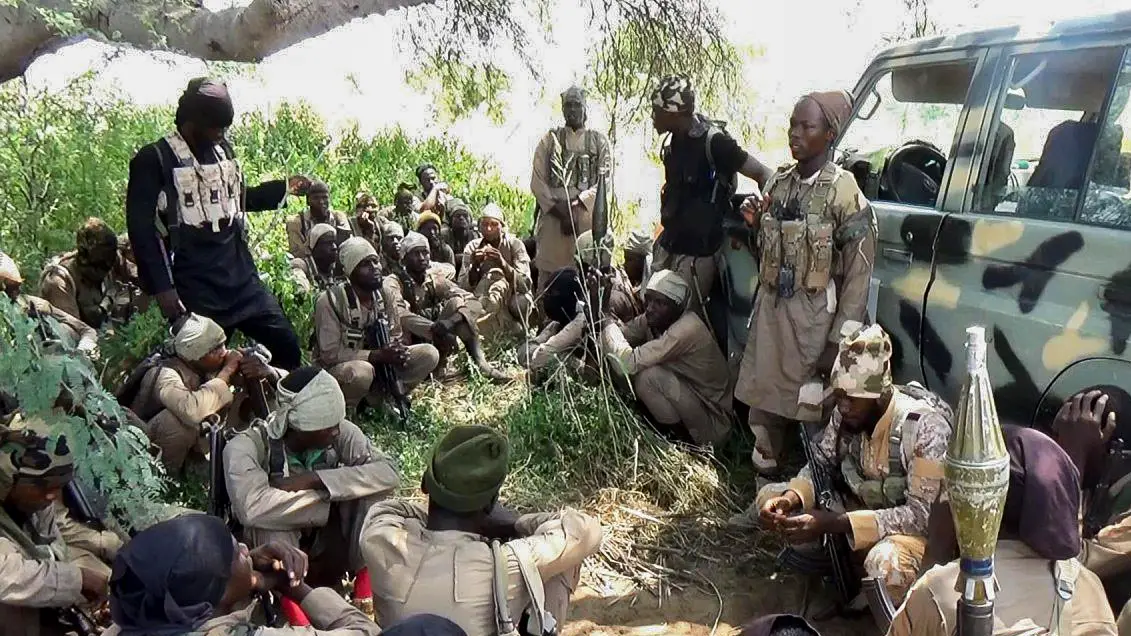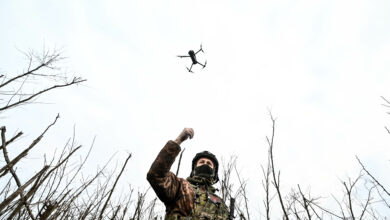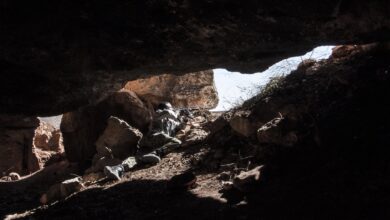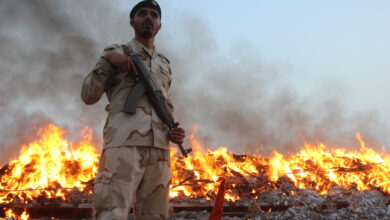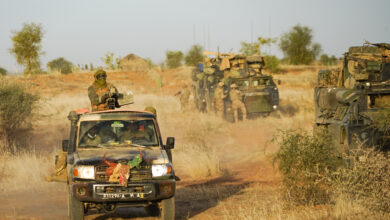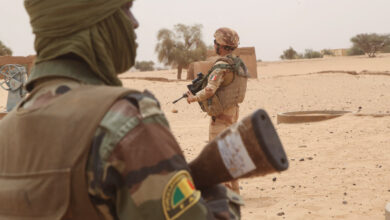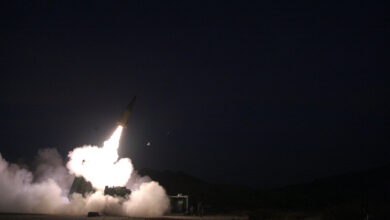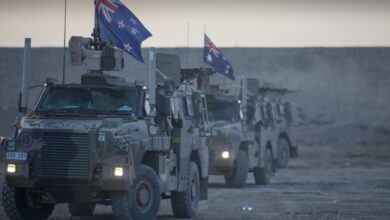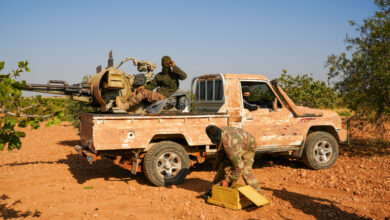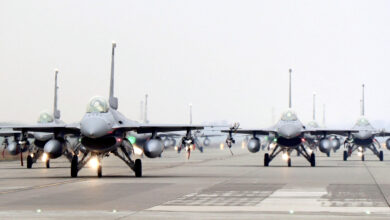Fierce clashes between a regional military force and Islamic State West Africa Province fighters near Baga in northeast Nigeria’s Borno state left 25 soldiers and at least 40 insurgents dead, two military sources and a militia leader told AFP on Thursday, August 1.
ISWAP fighters launched a dawn attack on Monday against a base near Baga in the Lake Chad area, setting off fierce gun battles that killed 20 Nigerian and five Chadian troops, the sources said.
“The terrorists killed 20 Nigerian troops and five Chadian soldiers in the intense fight in which soldiers killed 47 of the terrorists,” a military officer told AFP.
The head of a local anti-jihadist militia confirmed the military death toll and put ISWAP losses at “more than 40.”
The sources said that the ISWP raid was repelled and the fleeing fighters were then met by a convoy of special forces bringing supplies from the regional capital Maiduguri.
“They ran into special forces who had been alerted by the troops in the base and more of the terrorists were killed in a brief encounter,” a second military officer said.
The death toll is significantly higher than had been reported earlier. On Monday, regional counter-insurgency Multinational Joint Task Force spokesperson Colonel Timothy Antigha said a soldier was killed and five were injured in a “surprise dawn attack” by ISWAP fighters near Baga, adding that 10 insurgents were killed.
The MNJTF, which comprises personnel from Chad, Cameroon, Niger, and Nigeria, launched Operation Yancin Tafki on February 21 to battle the insurgents. It has said the cross-border operation is aimed at “making islands and other settlements in Lake Chad untenable for Boko Haram Terrorists.”
On Wednesday, Islamic State claimed that ISWAP fighters clashed for several hours with soldiers at Mile 4, which is near Baga. It said more than than 15 soldiers were killed and others were wounded.
The number of military casualties caused in recent insurgent attacks is unclear. The Nigerian military seldom comments on the ongoing counter-insurgency operations, and tends to downplay the insurgents’ effectiveness, calling reports “fake news” and the work of “Boko Haram sympathizers.”
This week marks 10 years since the Islamist insurgency in northeast Nigeria began, and the assault near baga was just one of a number of reported attacks in Borno state that came on the eve of the 10th anniversary of the death in police custody of Boko Haram founder Muhammad Yusuf.
ISIS said ISWAP fighters attacked a Nigerian Army base in Benisheikh on Monday, claiming that around 25 soldiers were killed and others injured in clashes that lasted several hours. It said the insurgents seized weapons and ammunition, and burned the base in Benisheikh, which is around 70 km west of Maiduguri. There were also reports of a Monday attack in Bama, around 70 km southeast of Maiduguri.
On Tuesday evening, a spokesperson for President Muhammadu Buhari again insisted that Boko Haram was defeated, blaming ongoing violence in the northeast on international jihadists exploiting porous borders with Sahel countries.
Relentless ISWAP attacks on the military around Baga
The fishing town of Baga is on the shores of Lake Chad, around 160 km (100 miles) northeast of Borno state capital Maiduguri.
Since July last year, ISWAP has intensified attacks on military targets, killing dozens of soldiers and overrunning bases, mainly in the Lake Chad area of Nigeria, Chad and Niger where it is the dominant insurgent group.
In late December, ISWAP fighters overran military and naval bases in and around Baga. Images released by Islamic State appeared to show large quantities of weapons, vehicles and other equipment captured during the fighting in and around Baga.
One base that housed MNJTF troops was recaptured weeks later, but Baga itself and a separate naval base on Lake Chad remain under ISWAP control, according to locals and security sources, AFP reported.
Since then, ISWAP has repeatedly attacked MNJTF and Nigerian military bases in the area.
In May, ISIS released video featured extensive battle footage of attacks against military bases which appear to have been carried out between November and January, including attacks in Kareto, Arege and Baga in the Lake Chad area of Borno state.
More recently in early June, ISWAP fighters attacked military bases south of Baga in Marte, Dikwa and Kirenowa.
In late June, at least one Chadian soldier was killed and 12 other soldiers were injured during an MNJTF operation against ISWAP in the Baga area, the Nigerian Army said, adding that 42 “terrorists” were “neutralized while several others were wounded.” ISIS claimed “at least 15” soldiers were killed and others injured in a suicide car bomb attack.
Decade-long cross-border insurgency
The jihadist group known as Boko Haram began its bloody insurgency in northeastern Nigeria in 2009, but it has since spread into neighboring Niger, Chad and Cameroon, prompting a regional military response. More than 27,000 people have been killed and two million others displaced, sparking a dire humanitarian crisis in the region. The U.S. assesses that Boko Haram and ISWAP have been responsible for over 35,000 deaths since 2011.
Boko Haram split into two factions in mid-2016. One, led by long-time leader Abubakar Shekau, is notorious for suicide bombings and indiscriminate killings of civilians. Shekau pledged allegiance to ISIS leader Abu Bakr Al-Baghdadi in March 2015, but ISIS central only gives formal backing to the other faction, which it calls Islamic State West Africa Province.
The ISWAP faction, which largely focuses on attacking military and government targets, was led by Abu Mus’ab Al-Barnawi, but in March, audio recordings revealed that ISIS appointed Abu Abdullah Idris bin Umar, also known as Ibn Umar al-Barnawi, as leader. Despite releasing several videos featuring ISWAP since, ISIS has not yet made a public statement confirming the change.
Since May, Islamic State has attributed insurgent activities in the Mali-Burkina Faso-Niger tri-border area to its West Africa Province affiliate, rather than to what was previously known as Islamic State in the Greater Sahara. In a June 15 ISIS propaganda video, ISWAP militants purportedly in Nigeria, Mali and Burkina Faso were shown reaffirming their pledge of allegiance to ISIS leader Baghdadi.
With reporting from AFP

